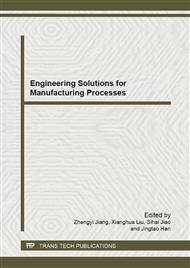p.936
p.940
p.948
p.955
p.959
p.963
p.969
p.974
p.978
A Particle Pair Optimization Algorithm
Abstract:
The paper proposes a particle pair optimization (PPO) algorithm for numerical optimization. In the paper, a particle pair search(PPS) is designed. Based on PPS, the competitive roulette strategy is employed to the selection of particle pair from swarm, and a particle pair optimization algorithm is proposed. In the experiments, PPO is applied to solve the 12 benchmark problem, and compared with fast evolutionary programming (FEP). The results demonstrate that PPO algorithm can find optima or close-to-optimal solutions of the complex functions with high-dimension, and the search of PPO is stable and efficient.
Info:
Periodical:
Pages:
959-962
Citation:
Online since:
January 2013
Authors:
Price:
Сopyright:
© 2013 Trans Tech Publications Ltd. All Rights Reserved
Share:
Citation:


